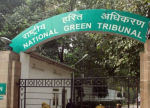Dec 6, 2020
New Delhi: With no sign of any agreement between the government and the protesting farmers even after the fifth round of talks on Saturday, and the next meeting scheduled for December 9, farmers are sticking to their first and major point – that the three “anti-farmer” laws passed in September be repealed. However, the government says these laws are in the interest of farmers to make them richer.
The Farmers Produce Trade and Commerce (Promotion and Facilitation) Act, 2020; The Farmers (Empowerment and Protection) Agreement of Price Assurance and Farm Services Act, 2020; and The Essential Commodities (Amendment) Act, 2020 are the main issue behind farmers’ protest.
The farmers are demanding the scrapping of these these laws which were passed in the Monsoon Session of Parliament. The government’s offer to amend these laws have been rejected by over 40 farmer union leaders who have been talking to the government on behalf of thousands of farmers sitting on five different borders with a set of five major demands since November 26.
The Farmers Produce Trade and Commerce (Promotion and Facilitation) Act, 2020:
Benefits (as per the government)
1. Farmers have got a new option insofar they will have the freedom to sell their produce outside the APMC (agricultural produce market committee) market and there will be no tax on such trade which will give a higher price to the farmers.
2. Farmers can sell their produce within the state or anywhere else in the country and there will be no restriction on this type of trade. This will benefit the farmers that they will be able to sell their produce to the merchant wherever they get a higher price.
3. There will be no need for any kind of license for traders to purchase agricultural produce of farmers in the trade area outside the APMC mandi, but also those holding PAN card or any other document notified by the Central government can join this trade. This will facilitate trade in agricultural products and will benefit the farmers.
4. In case of any dispute arising in such business, the matter will be settled within 30 days by the Sub-Divisional Magistrate.
5. There are also provisions of heavy penalty for violation of rules and regulations.
Drawbacks (as per the farmers)
1. With this law, mandis operated under the APMC law of the states will be abolished. After the end of the APMC mandis, the farmers will be forced to sell the crop to corporate companies at one-and-a-half price.
2. Due to the abolition of the mandi system, there will be no purchase of crops on MSP.
3. Farmers’ products have been going from one state to another in the past and the provisions of the new law are only for the benefit of the corporate and not for the benefit of the farmers.
4. Farmers will be exposed to the risk of fraud due to the entry of people without license or registration.
5. In case of any dispute in the business with the corporate buyer, there will be a danger of farmers’ interests being ignored.
Besides these, farmers fear losing their land and becoming “slaves” to the corporates as far as The Farmers (Empowerment and Protection) Agreement of Price Assurance and Farm Services Act, 2020 is concerned.
According to the farmers, The Essential Commodities (Amendment) Act, 2020 is also in favour of big buyers.IANS



















